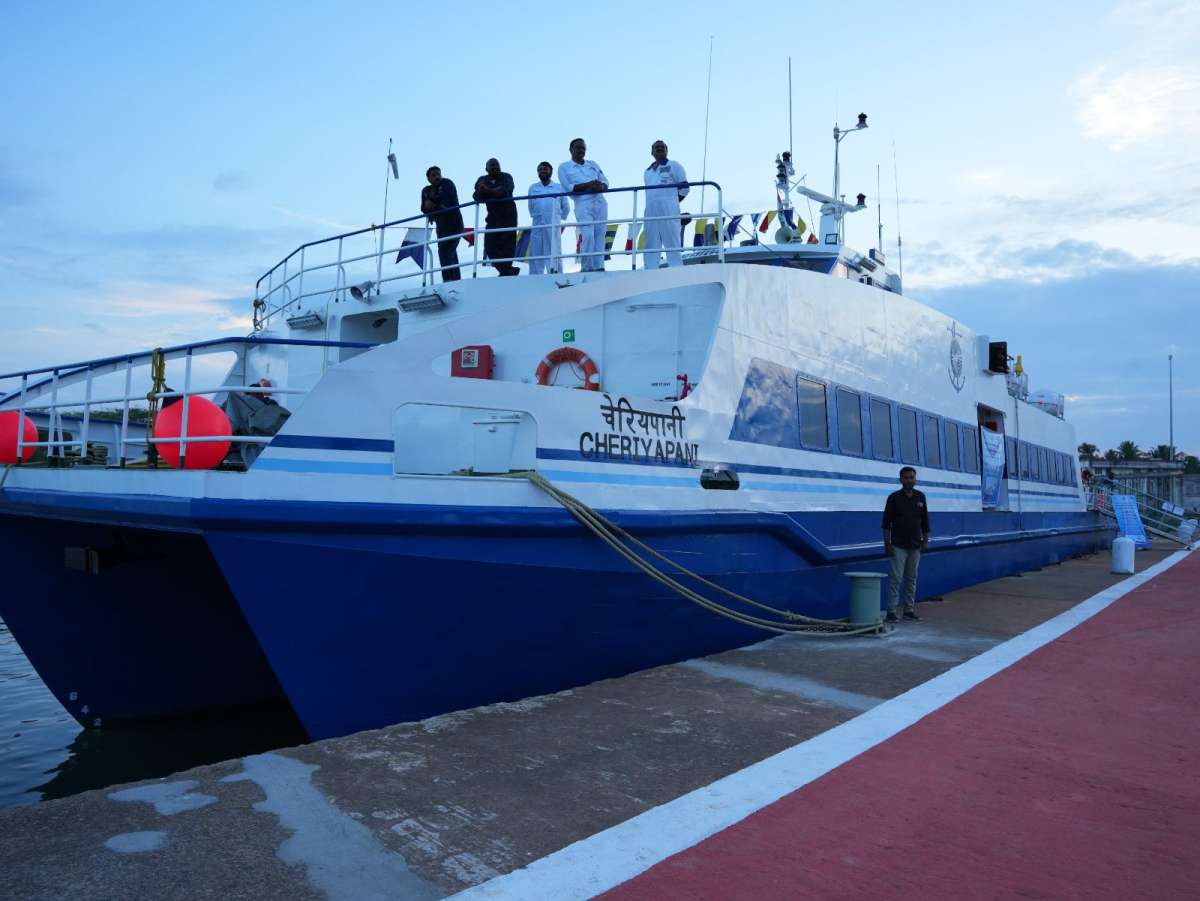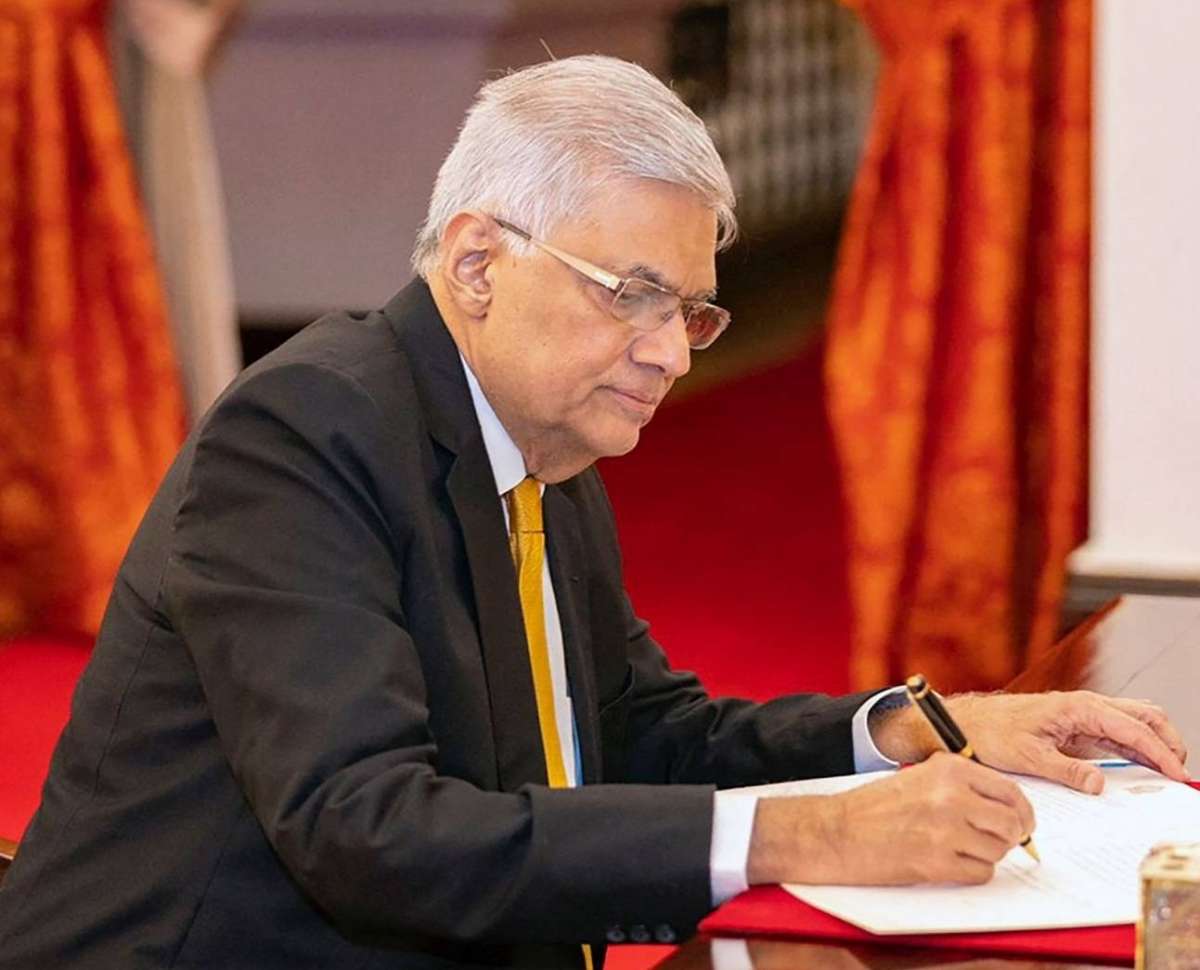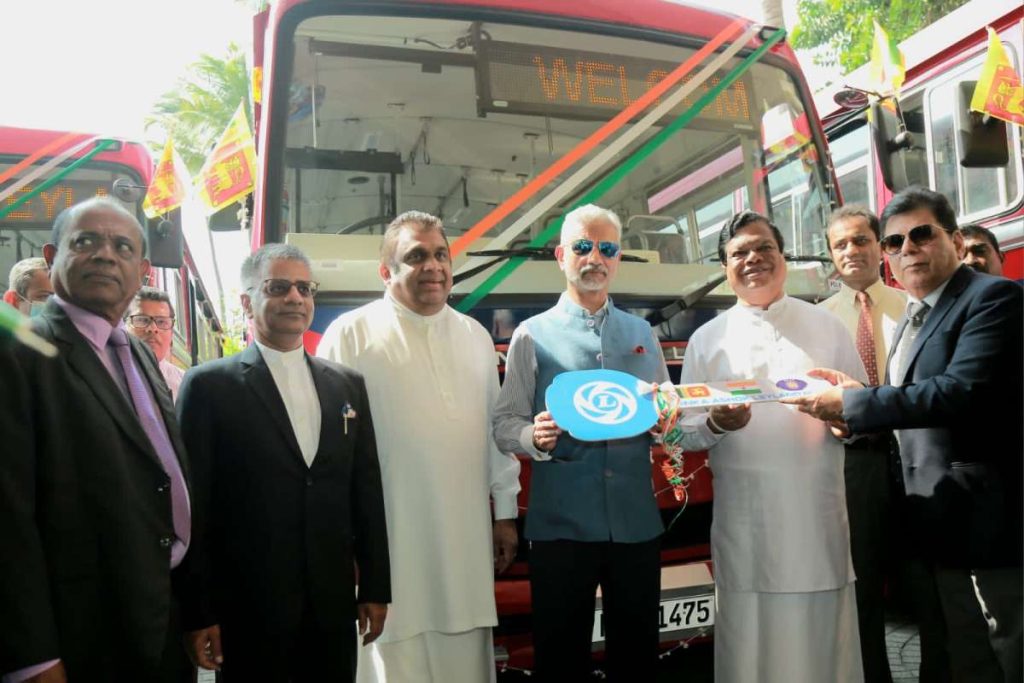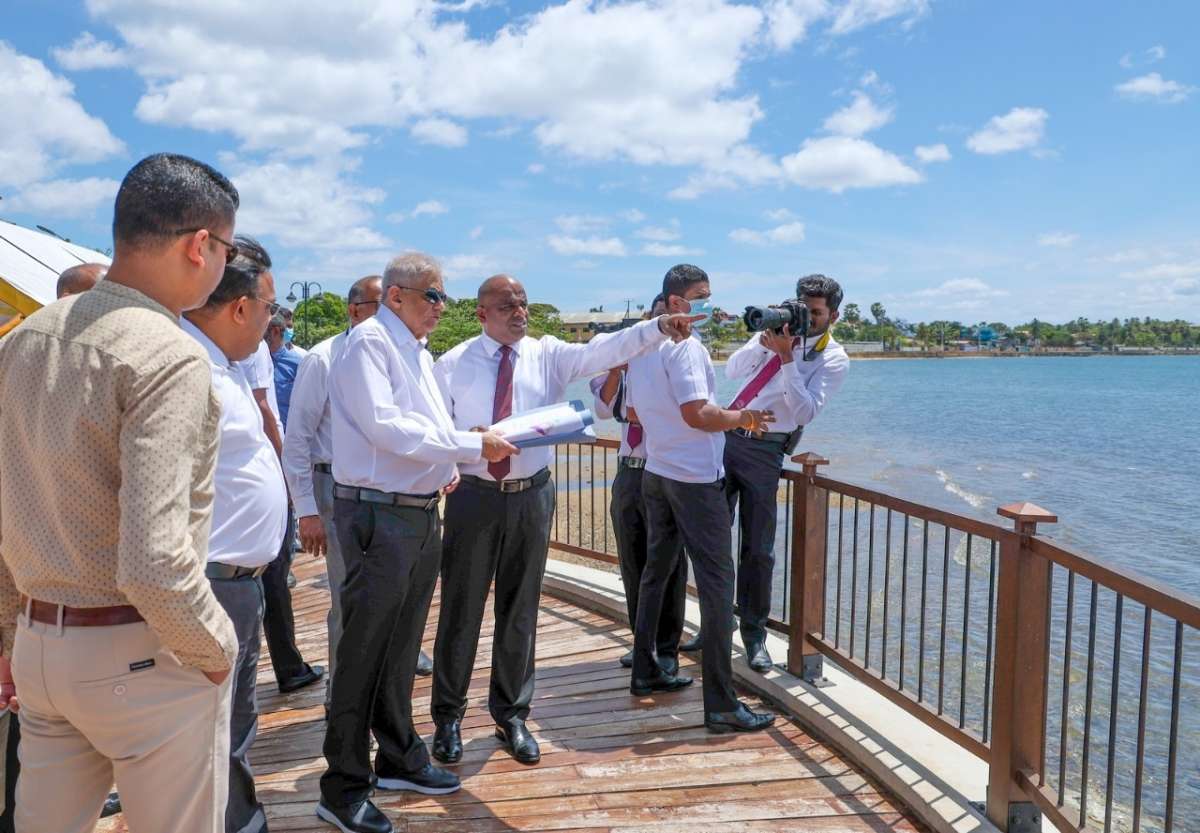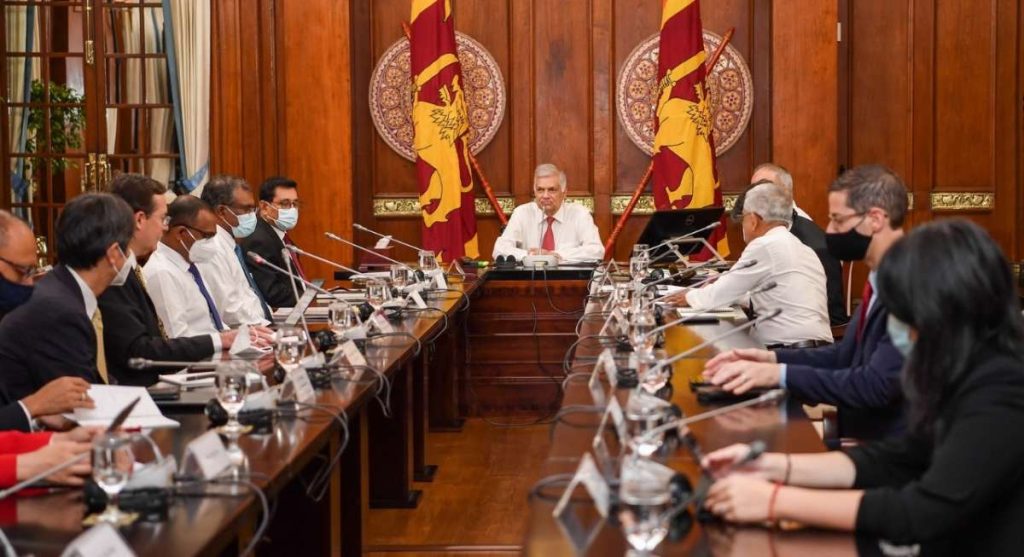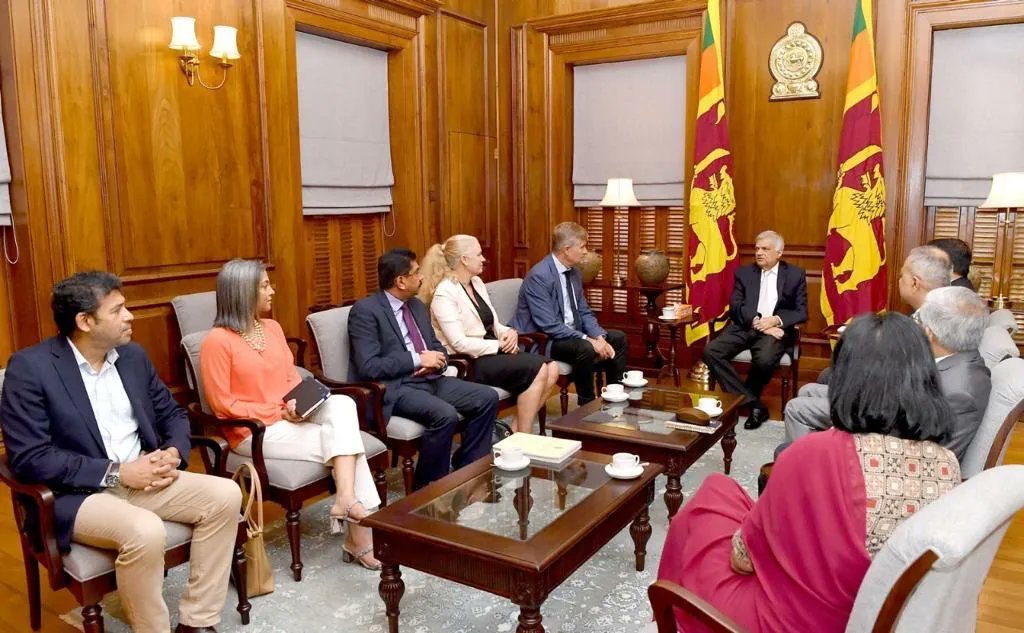India’s Minister for Ports, Shipping and Water Ways, Sarbananda Sonowal and Tamil Nadu Minister for Public Works and Ports, E.V. Velu flagged off the ferry service from Nagapattinam port today.
A high speed passenger ferry service between Nagapattinam in Tamil Nadu to Kankesanthurai in Sri Lanka was resumed on Saturday, (October 14) after a gap of 40 years.
Union Minister for Ports, Shipping and Water Ways, Sarbananda Sonowal and Tamil Nadu Minister for Public Works and Ports, E.V. Velu flagged off the ferry service from Nagapattinam port on Saturday.
The Union minister in his inaugural address said that the operation of ferry service would increase the cultural ties between Tamil Nadu and the Northern Province of Sri Lanka. He also said that several pilgrims from Sri Lanka would be benefitted given the proximity of Nagapattinam to religious centres like Thiruvanallur, Nagore and Velankanni.
Prime Minister Narendra Modi and Sri Lankan Prime Minister Ranil Wickremesinghe hailed the launch of high speed ferry service between the two nations through video messages.

Modi said that the ferry service will help strengthen the cultural, commercial and diplomatic ties between the two countries. He said, “Connectivity is the central theme of the joint vision of the Indo-Sri Lanka economic partnership and we will resume the ferry service between Rameswaram and Talaimannar”.
Sri Lankan Prime Minister, Ranil Wickremesinghe said that ferry service was an important step in improving connectivity between the two countries. He said that the earlier ferry service was suspended due to the civil war (1983) in Sri Lanka.
The high speed ferry craft, Cheriyapani has 50 passengers, 12 crew members and Captain Biju George on board.
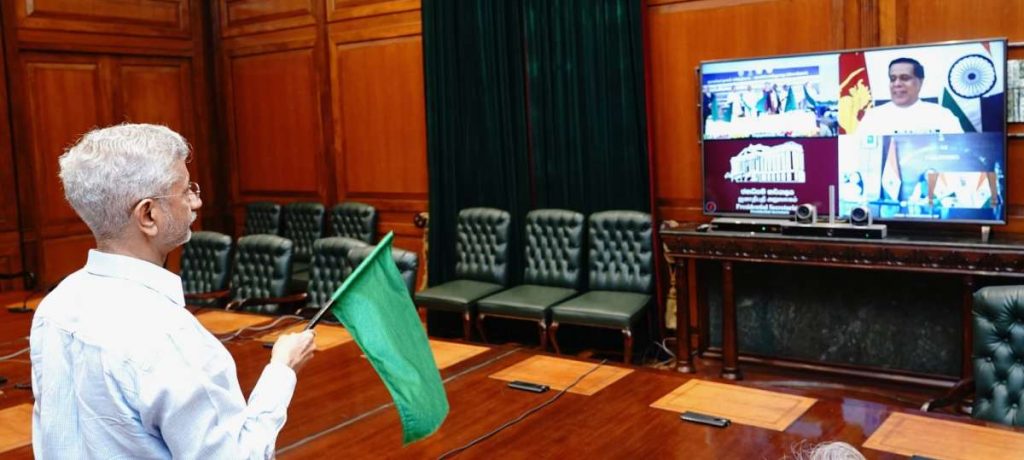
A private agency will be selling the tickets of the ferry service operated by the Shipping Corporation of India. The ferry can accommodate 150 passengers and will start from Nagapattinam at 7 a.m. and reach Kanakesanthurai by 11 a.m. The ferry will return at 1.30 pm and reach Nagapattinam by 5.30 pm.
The operations will be conducted till October 23 when the Northeast monsoon sets in and the sea would turn rough. The service will be resumed again in January 2024, according to State Port officer, Anbazhagan.
ALSO READ: Lanka Navigates Economic Troubles amid China’s Growing Influence
